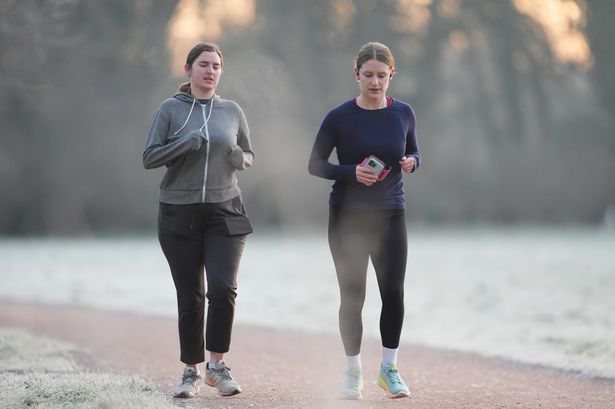Research indicates that incorporating brief bursts of physical activity, referred to as “exercise snacks,” can significantly improve health outcomes. A new study published in the British Journal of Sports Medicine reveals that engaging in short periods of exercise throughout the day enhances respiratory fitness and may be particularly beneficial for those with limited time or low motivation.
The study highlights that even minimal activity—ranging from 10 to 59 minutes of exercise per week—can lead to an 18% reduction in the risk of premature death from various causes. Most adults, however, fall short of the recommended guidelines of 150 to 300 minutes of moderate activity or 75 to 150 minutes of vigorous activity each week.
New Findings on Exercise Snacks
Researchers from the University of Oviedo in Spain and the Danish Centre for Motivation and Behaviour Science conducted a meta-analysis of 11 randomized controlled trials involving 414 inactive participants, of whom 69% were women. The study defined exercise snacks as structured bouts of physical activity lasting less than five minutes, performed at least twice daily for a minimum of three days each week.
The findings reveal that these short-duration activities significantly improve cardiorespiratory fitness among adults. While there was limited evidence of enhancements in muscular endurance for older adults, the overall benefits of exercise snacks are clear. Notably, participants were more inclined to maintain short bursts of activity compared to longer, traditional workout sessions, which often lead to higher dropout rates.
The research team stated, “Achieving even half of the recommended weekly physical activity volume confers significant mental health benefits, including an 18% lower risk of depression.” This underscores the potential of low-volume, accessible exercise strategies to deliver substantial health gains, particularly in physically inactive populations.
Benefits of Time-Efficient Workouts
The study emphasizes the “time-efficient nature of exercise snacks,” suggesting they may appeal to individuals who perceive themselves as too busy to engage in regular physical activity. The researchers highlighted that these flexible exercise bouts are easier to incorporate into daily routines, promoting adherence to a more active lifestyle.
Examples of moderate activity include brisk walking at a pace of 4 mph or faster, heavy cleaning tasks, and cycling at 10 mph to 12 mph. On the other hand, vigorous activities encompass jogging at 6 mph or faster, shoveling, and participating in sports such as basketball or tennis.
In conclusion, the promotion of exercise snacks offers a promising approach for improving health outcomes among various demographic groups. By harnessing the power of short, structured activity, individuals may find a sustainable pathway to meet their fitness goals and enhance their overall well-being.








































































